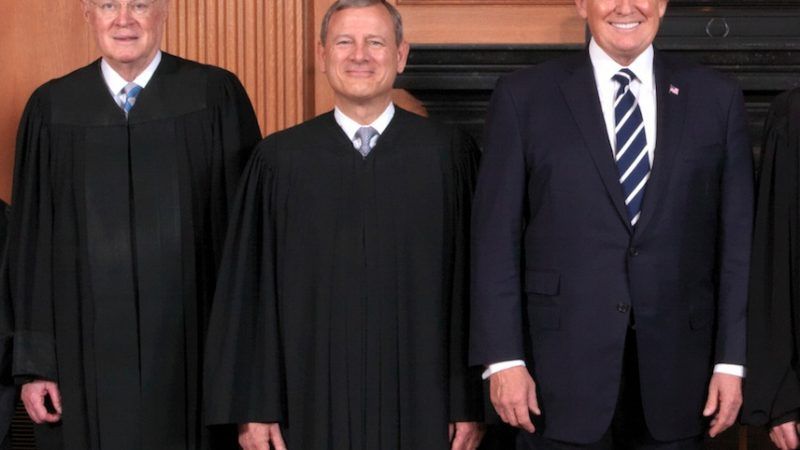Why SCOTUS Should Tell the Government to 'Get a Warrant' in Cellphone Location Data Case
The third-party doctrine is at odds with the Fourth Amendment.

The Fourth Amendment to the U.S. Constitution famously guarantees "the right of the people to be secure in their persons, houses, papers, and effects, against unreasonable searches and seizures." Yet in 1979 the U.S. Supreme Court held that law enforcement officials do not need a search warrant to get a suspect's telephone call records from a phone company. "A person has no legitimate expectation of privacy in information he voluntarily turns over to third parties," the Court ruled in Smith v. Maryland.
Otherwise known as the "third-party doctrine," this legal rule raises profound and troubling questions in the age of the smartphone. Nowadays we share all sorts of personal information with third parties, such as the numbers we dial and text, the URLs we visit, the email addresses we correspond with—even the physical locations from which we access our devices. Does it make any sense to exclude so much meaningful and highly sensitive private information from the "papers" and "effects" entitled to Fourth Amendment protections?
This fall the U.S. Supreme Court will have the opportunity to give the third-party doctrine a second look when it hears oral arguments in the case of Carpenter v. United States. At issue is whether the FBI violated the Fourth Amendment when it obtained, without a search warrant, the historical cellphone call and location records of several suspected armed robbers. Federal agents used those records to identify the cell towers that handled the suspects calls during the time periods in which the robberies occurred. The government then traced back the suspects' movements and linked their whereabouts to their alleged crimes.
How should the Court approach this case? In an amicus brief filed last week, the Cato Institute, the Competitive Enterprise Institute, the Committee for Justice, and the Reason Foundation (the nonprofit that publishes this website) offer a piece of eminently sound constitutional advice: "This Court should apply the terms of the Fourth Amendment in all Fourth Amendment cases."
What that means in practice, the brief explains, is that "the government's compulsory acquisition of data in this case was a seizure. Processing the data to make it human-readable was a search….Thus, it was unreasonable to seize and search the data without a warrant. Lacking exigency or other excuse, the government should have got one."
"Get a warrant" is the perfect message for the Supreme Court to tell the government in this case.


Show Comments (18)